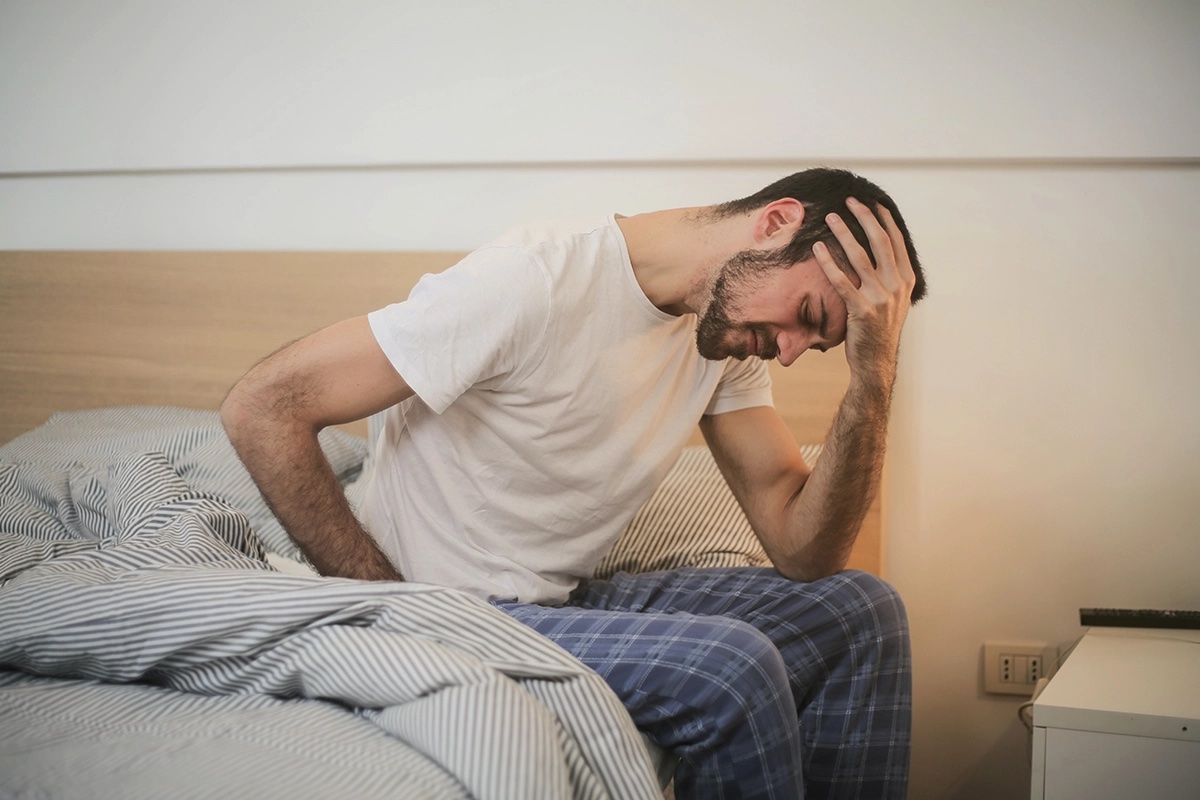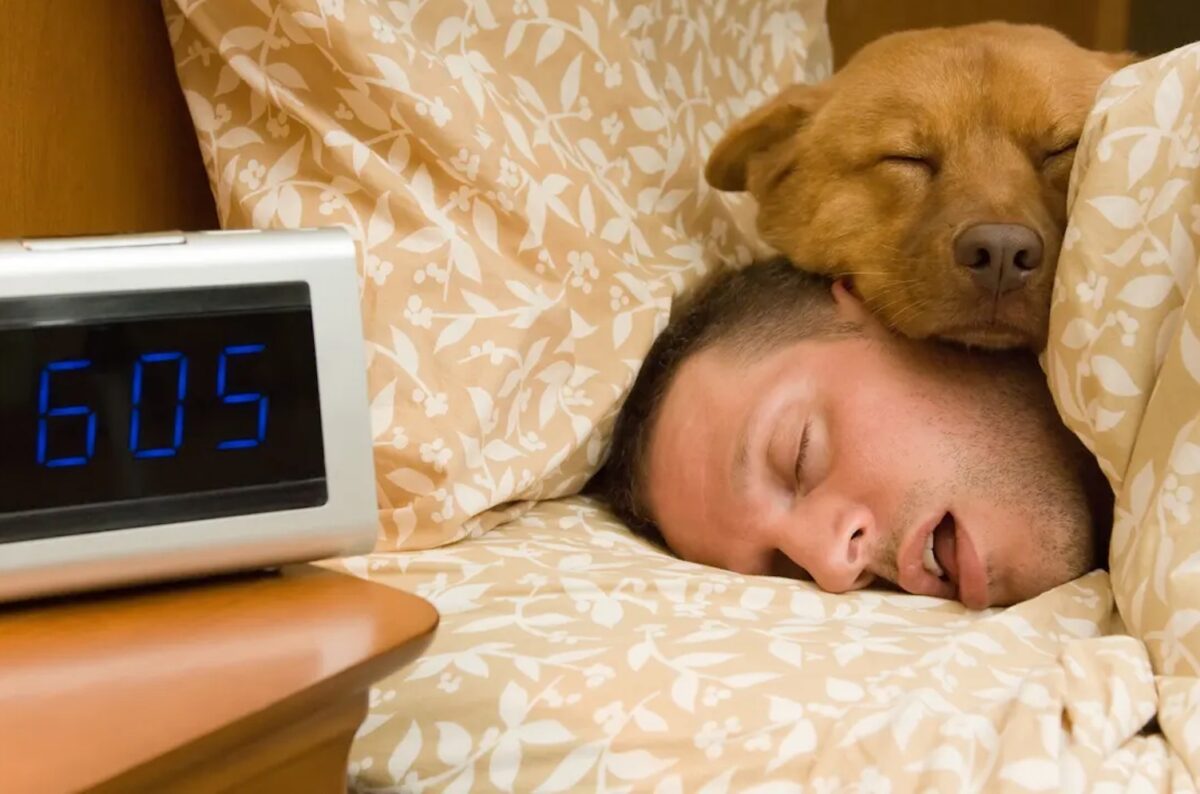As a recent ex-pat Brit, one of the first things I notice about Aussie culture, between bleary eyes and morning breath, was just how early Aussies love to start the day. My experience of Aussies speeding past me on the pavement completing a morning jog or heading to the gym while I dragged my sorry heels to the nearest four-shot coffee shop was entirely anecdotal… Until now. Here, we break down why your bedtimes matter and where Aussies rank compared to the rest.
For decades, people have been looking for better ways to get deep sleep or to take the edge of that stinging Monday morning feeling of bleary-eyed dread as the alarm clock barks in your ear, demanding you start another gruelling week.
But why is it that we crave better sleep and feel so bad when we don’t get it? And is curtailing your Drive To Survive marathon just to get an extra forty-five minutes in bed really worth it?
For some, going to bed at the same time every night is non-negotiable. They make sleep, and getting in a certain number of hours each night, a top priority. Others simply go to bed when they feel good and ready, or the day’s list of tasks has finally come to a welcome end.
So, does it really matter what time you go to bed? According to experts, the answer is a resounding yes.
Why Sleep Matters for Your Health
A good night’s sleep plays a crucial role in maintaining good health and well-being. It enhances brain function, mood, metabolic health, and immunity levels amongst many other things.
On the flip side, lack of sleep or poor sleep quality can lead to several health issues, including weight gain, diabetes, high blood pressure, depression, and an increased risk of infections.
Recent studies have also suggested that insufficient sleep can raise the risk of developing long COVID, too…

The Role of Your Body Clock
Your body clock, also known as the circadian clock, regulates the timing of your sleep. It’s basically your body’s biological timekeeper that regulates a whole host of processes, including your all-important sleep-wake cycle.
While you can sleep at any time during the day as long as you’re suitably tired – which, speaking for myself, represents very little limitation – your circadian clock dictates to your body that really you should be sleeping at night while staying plenty active and energised throughout the day.
Disrupting your circadian clock by regularly working night shifts or staying up excessively late can result in poorer health. Even sleeping in on weekends after staying up late can cause what’s known as “social jetlag,” which mimics the effects of shift work and increases the risk of mental health issues and obesity… so long to big nights out on the Cross.
Struggle to sleep with your partner? WATCH these sleep hacks for couples guide below.
The Impact of Your Chronotype
Your chronotype refers to your natural tendency to be active or sleepy at certain times of the day, based on those aforementioned circadian rhythms.
Your individual chronotype is mainly influenced by your genes, with most people falling somewhere on a wide-ranging spectrum between up-and-at-’em early types (larks) and burning-the-midnight-oil types (night owls).
While you can’t actively change your chronotype, it can organically change over time. Children are early birds, teenagers tend to be night owls (a shocking revelation, I know) and, as you age, you become more of an early bird again.
Your chronotype is partially dependent on your social obligations, like work commitments or family responsibilities, which can all affect how much sleep you get. Remember how we said that kids are early birds and so are parent-age adults… adds up all too well, doesn’t it?

Late chronotypes may have a disadvantage due to the demands of modern life conflicting with their natural sleep patterns and, as a result, night owls are often more likely to suffer poor cardiometabolic health and a higher risk of depression.
Some scientists (who, in my belated teen self’s opinion, deserve a significant pay rise) suggest delaying school start times for teenagers to ensure they get enough sleep, which could improve health outcomes as well as in-school performance.
How Do Aussie Bedtimes Compare With The Rest?
But this is where the gloating can finally begin. We wanted to see how Aussies measure up compared to the rest of the world when looking at bedtimes and wake-up times.
The results are, to say the least, encouraging for us and our Kiwi neighbours.
Starting with bedtimes, you can see that Aussies get to bed nearly a full ninety minutes ahead of our Russian and Greek counterparts. What are they doing up so late? Who knows…
Average bedtime:
— World of Statistics (@stats_feed) March 12, 2023
🇳🇿 New Zealand- 11:29 pm
🇦🇺 Australia- 11:33 pm
🇸🇪 Sweden- 11:50 pm
🇺🇸 USA- 11:54 pm
🇨🇦 Canada- 11:57 pm
🇩🇪 Germany- 11:59 pm
🇫🇷 France- 12:19 am
🇲🇽 Mexico- 12:20 am
🇬🇧 UK- 12:28 am
🇧🇷 Brazil- 12:32 am
🇹🇷 Turkey- 12:59 am
🇬🇷 Greece- 1:05 am
🇷🇺 Russia- 1:05 am
And you’ll be pleased to hear that wake-up times are just as encouraging, with the average Aussie wake-up time coming in at an impressive 7:13am:
🌅🌍 Rise and Shine: Average Wake-Up Times Around the World
— UberFacts (@UberFacts) March 11, 2023
🇸🇰 Slovakia – 7:18 AM
🇨🇳 China – 7:42 AM
🇭🇺 Hungary – 7:22 AM
🇨🇿 Czech Republic – 7:15 AM
🇵🇱 Poland – 7:25 AM
🇨🇭 Switzerland – 7:13 AM
🇹🇼 Taiwan – 7:56 AM
🇦🇹 Austria – 7:20 AM
🇺🇦 Ukraine – 7:51 AM
🇩🇪 Germany – 7:25 AM…
So, though both these statistics are mightily impressive and great news for the health of Aussies nationwide – no doubt contributing to that Australian glow that so evades me and my pale European counterparts – there is one small frustration to be found here…
It seems that our Kiwi neighbours beat us by a few minutes at either end of the day… What exactly are they doing with that extra two minutes in the morning? And where exactly are they finding the extra four minutes in the evening to get their PJs on and get to sleep?
My theory is that they actually spend four minutes less performing certain bedroom-related activities… but I’m yet to see the studies on that one. Budding Aussie scientists, I hand that one over to you. For now, put your phone down and get some damn sleep.
